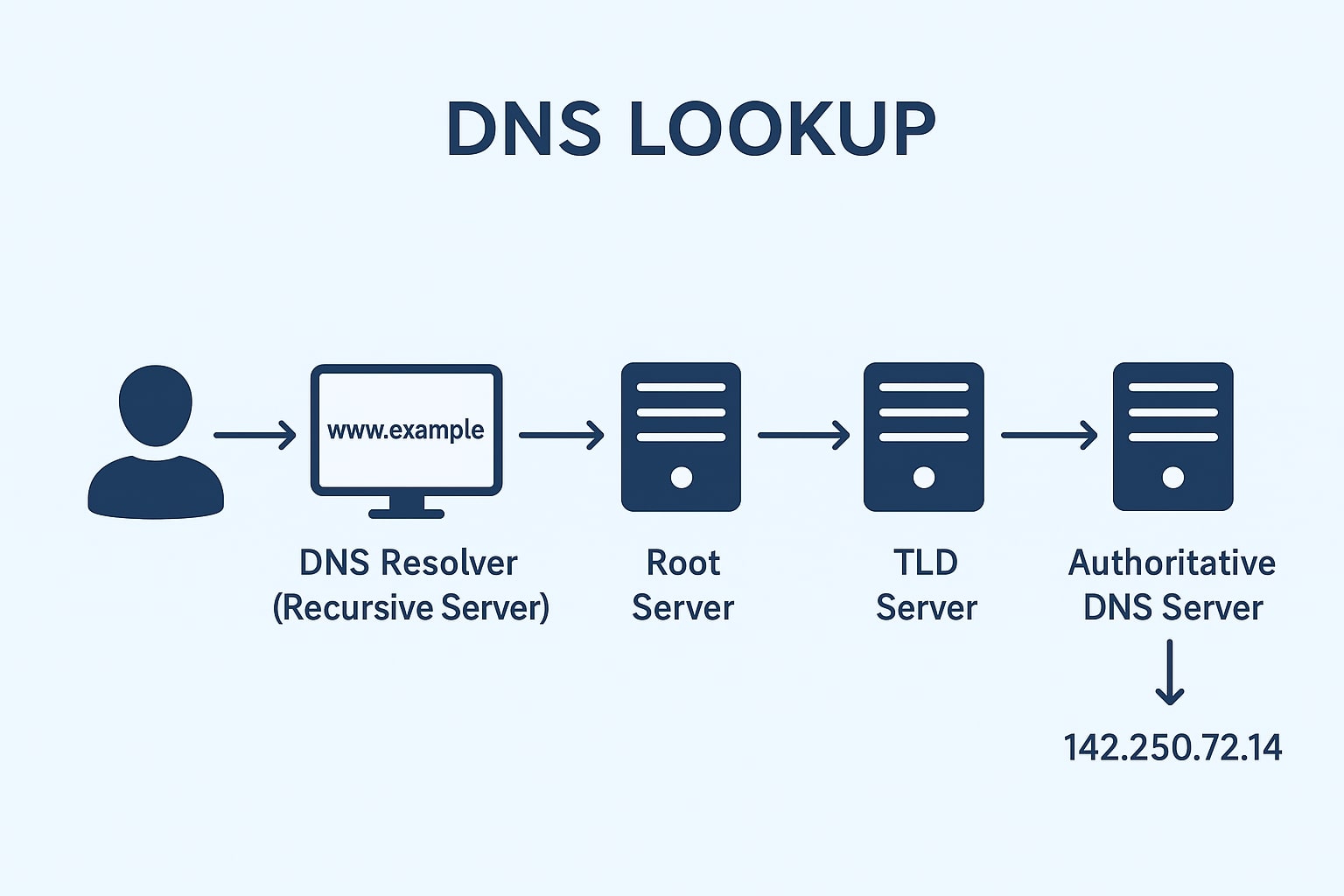
Dns Lookup
Created on 27 September, 2025 • Checker Tools • 66 views • 2 minutes read
Learn what DNS lookup is, how it works, and why it’s essential for website performance, SEO, and security. Discover forward and reverse DNS lookups with simple examples.
DNS Lookup: A Complete Guide
When you type a website address like www.example.com into your browser, your computer doesn’t immediately know where to find it. This is where a DNS lookup comes in. DNS, or Domain Name System, works like the internet’s phone book, translating domain names into IP addresses. Without DNS lookup, browsing the web would be nearly impossible.
What is DNS Lookup?
DNS lookup is the process of converting a domain name into an IP address so that computers can locate each other on the internet. For example, when you enter a domain like google.com, a DNS lookup finds its corresponding IP address (such as 142.250.72.14).
There are two main types of DNS lookups:
Forward DNS Lookup
This is the most common type of DNS lookup. It takes a domain name and resolves it into an IP address. For instance, typing facebook.com into your browser triggers a forward lookup to find the IP.
Reverse DNS Lookup
A reverse DNS lookup does the opposite. It starts with an IP address and tries to find the domain name associated with it. This method is often used in security checks and email spam prevention.
How DNS Lookup Works
A DNS lookup isn’t just a single step. It involves several stages and servers:
- DNS Resolver (Recursive Server): Your device first queries a DNS resolver, often provided by your Internet Service Provider (ISP).
- Root Name Server: If the resolver doesn’t know the answer, it contacts a root server, which directs it to the appropriate top-level domain (TLD) server (.com, .org, .net, etc.).
- TLD Name Server: The TLD server points the resolver toward the authoritative server for the requested domain.
- Authoritative DNS Server: This server holds the actual IP information for the domain. Once found, it sends the IP back to your device.
This entire process usually takes milliseconds, making web browsing appear seamless.
Importance of DNS Lookup
DNS lookup plays a crucial role in internet functionality:
- Website Accessibility: Without DNS, users would need to remember complex IP addresses.
- Performance Optimization: Proper DNS setup can improve website speed and reliability.
- Email Security: Reverse DNS helps block spam and verify legitimate senders.
- SEO Benefits: Search engines rely on DNS availability; downtime caused by DNS issues can affect website ranking.
Common DNS Lookup Tools
There are several tools available to check DNS records and troubleshoot issues:
- Command-Line Tools: nslookup, dig, and host are popular for testing DNS queries.
- Online DNS Lookup Services: Websites like MXToolBox and DNSChecker help monitor domain DNS records.
- Browser Extensions: Some plugins allow quick DNS checks without leaving your browser.
Conclusion
DNS lookup is the backbone of the internet, allowing humans to use easy-to-remember domain names while computers work with numerical IP addresses. Whether you’re a website owner, IT professional, or just a curious user, understanding DNS lookup can help you troubleshoot connectivity issues, optimize performance, and improve security.
By ensuring your DNS is properly configured, you can enjoy faster browsing, secure email delivery, and a stronger online presence.
Popular posts
-
Barcode readerMisc Tools • 160 views
-
Color pickerMisc Tools • 122 views
-
Exif readerMisc Tools • 117 views
-
SHA-256 generatorGenerator tools • 93 views
-
Ip LookupChecker Tools • 90 views